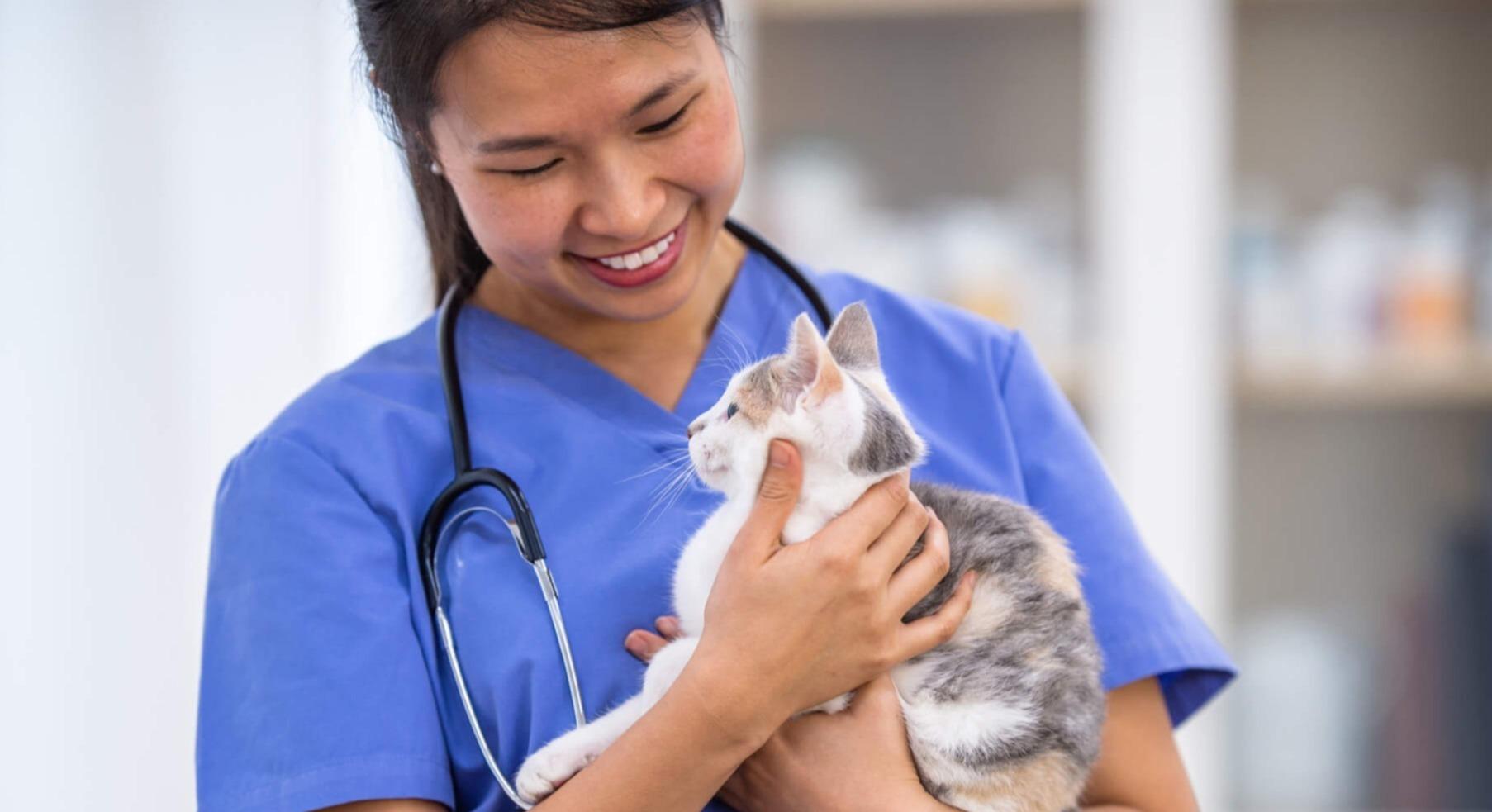As paw-parents it can be really difficult to watch your fur baby go through a health condition that causes them any pain or discomfort. It's natural for us to try and protect our pets from any kind of pain and it can be heartbreaking to see them have a hard time with a serious ailment or condition. One such condition that kitties can unfortunately have is anemia.
What is Anemia in Cats?
Anemia, whether in humans or felines, is defined as a lack of red blood cells or hemoglobin in the blood (or in some cases, both). There are two types of anemia-
Regenerative Anemia
In this case, the bone marrow produces just enough red blood cells to be able to correct the anemia, which means that it appropriately increases the red blood cell production to help make up for the lack. Usually, this kind of anemia is caused by sudden or acute blood loss, either due to an injury, infection, or even a serious health issue like cancer. Typically, a younger kitty is more likely to have this kind of anemia.
Non-regenerative Anemia
When a cat has non-regenerative anemia, the bone marrow itself doesn't function properly causing a deficiency of red blood cells that can't be corrected. Most often, this kind of anemia is caused by underlying kidney failure and is typically seen in older cats. But it could also be due to some other issues like liver disease, bone marrow disorders, or chronic conditions.
Now here's the catch - sometimes, kitties can have both regenerative and non-regenerative anemias at the same time.1
Anemia is a serious condition and it's typically caused by some other underlying health issue that needs urgent treatment. So, if you're afraid that your feline buddy may have anemia, here are some of the signs you should look out for:
Lethargy or unusual inactivity
Weakness or collapsing
Decreased appetite or disinterest in food
Increased heart rate
Rapid or effortful breathing
White or pale gums (could be yellow also, if there's jaundice, along with yellow eyes)
Pale gums and lethargy are the most common signs, so just be aware.1 If you suspect that your kitty might be experiencing any of these signs or symptoms, then you should take your cat immediately to the local vet or emergency facility for evaluation. The earlier the diagnosis, the earlier the treatment can start. It's crucial to take quick action.
What Causes Anemia in Cats?
(Hint: Some of these may surprise you) Here are some of the reasons a kitty can develop anemia:
Fleas or ticks have to suck blood from your kitty’s body. This can happen quite commonly with newborn kittens
Severe tummy ulcers
Hookworm infestations that eat up the blood in the feline’s intestines
The ingestion of rat poison (Signs and symptoms of poisoning)
How is Anemia Diagnosed in Cats?
If your vet suspects your cat has anemia, they may request a complete blood count (CBC) for evaluation. If there's no sign of external blood loss, the vet may check for signs of internal bleeding using X-rays or ultrasounds of your kitty's chest and stomach.
There could also be a concern that your feline baby’s bone marrow isn't working properly - in that case, your vet may suggest a bone marrow biopsy to collect a sample for further analysis.1
What are the Treatments for Anemia in Cats?
Your kitty's treatment plan will depend on what the underlying cause of their anemia is. In most cases, the treatment is going to include or be a combination of some kind of antibiotics, medications for gastrointestinal protection and deworming, and steroids. It can sound a bit scary but if the anemia is a bit too severe then your feline buddy may need a blood transfusion as well.
The majority of cats have one of two blood types - A or B, so your vet will likely perform blood typing on the donor and the recipient to help prevent any issue down the line or any reactions to the transfusion.2 Once your pet is stable, then the vet can focus on treating the underlying cause of anemia.
If there's trauma associated with the anemia, then surgery might be needed to stop the bleeding. In case of severe or chronic anemia, oxygen therapy, additional transfusions, and extra therapies might just be needed. This is where pet insurance can be beneficial for pet parents, Spot plans can help cover the cost of surgery and hospitalization.
How Long Does it Take a Cat to Recover From Anemia?
If your cat is severely anemic, they could be held at the animal hospital for between 2-7 days for treatment. In cases of mild anemia, cats can usually make a full recovery with no long-term effects.1 In more severe cases, cats may require long-term treatment and medication. If there's blood loss and trauma involved then the duration of the treatment can vary.
Conclusion
Pet parenting can simultaneously be one of the most joyful and difficult experiences that we can have. While our pets give us a lot of happiness, it can also be a challenge to deal with medical emergencies, and health conditions, whether severe or chronic, and to help ensure that our furry babies get the best care possible. We at Spot Pet Insurance understand how hard you work, and we aim to help you be the best paw-parent you can be.
“Anemia in Cats,” PetMD, https://www.petmd.com/cat/conditions/cardiovascular/c_ct_anemia_iron_deficiency, Aug. 8, 2022.
“The Causes and Symptoms of Anemia in Cats,” Guilford-Jamestown, https://www.guilfordjamestownvet.com/site/blog-greensboro-vet/2021/01/15/anemia-in-cats, accessed Jan. 11, 2024.
The information presented in this article is for educational and informational purposes only and does not constitute or substitute for the advice of your veterinarian.
